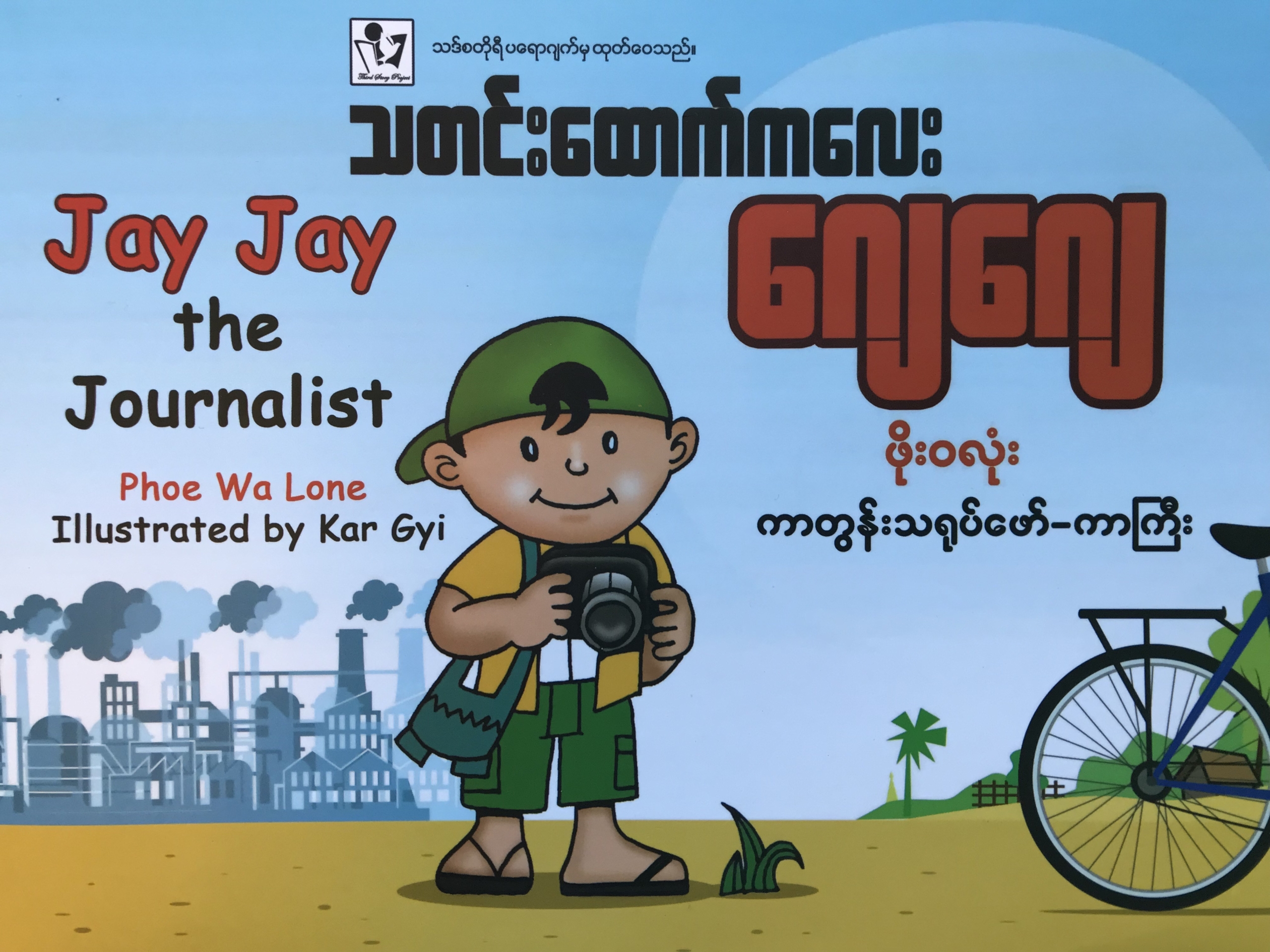Sign up for The Media Today, CJR’s daily newsletter.
In Myanmar, it used to be said that the best education could be found in prison, where intellectuals, artists, and journalists abounded. In 2011, when five decades of military rule came to an end, some in the country hoped those days were gone. But now, in a massive prison complex in Yangon, Myanmar’s largest city, an inmate proves that the rule holds: Wa Lone, one of two Reuters reporters arrested last December for investigating government violence against Rohingya Muslims, spends much of his time teaching English to fellow prisoners.
The Reuters journalists’ arrest drew condemnation from world governments and human rights groups and was seen as an alarming backstep for Myanmar’s free press. For Wa Lone, who is 32, it was a fate made all the more tragic by the birth of his daughter in August, which he missed.
Friends and colleagues of Wa Lone, though, describe him as a fundamentally optimistic person, the type of guy to make the most out of even the worst situation. In addition to teaching English, Wa Lone passes time in prison working on his English skills, tending a small garden, and reading voraciously. (According to a friend, he has so far made it through the entirety of the Harry Potter and Game of Thrones series.) He also writes: in September, the Third Story Project—a non-profit organization Wa Lone co-founded in 2014 to publish and distribute children’s books free of charge across Myanmar—released an illustrated story he wrote called Jay Jay the Journalist. “Many people in Myanmar think of journalists as swindlers,” Shwe Mi, Wa Lone’s editor at Third Story, says. “There is no child who wants to be a journalist. That is why we need to introduce what journalism is to children.”
In the book, a young boy named Jay Jay asks a lot of questions—earning him praise from teachers but the ire of his peers. When cattle in his village fall ill, Jay Jay sets out to discover why. Eventually, he finds that factories are polluting a nearby river and writes about it in the school newsletter. “Because of Jay Jay’s article, the village leaders from all around the area started holding meetings to find a solution to the problem,” the story reads. In the end, teachers and classmates applaud Jay Jay’s hard work and curiosity.
That outcome is a far cry from the seven-year sentences handed down to Wa Lone and Kyaw Soe Oo, his colleague, in September, following what Reporters Without Borders described as a “farcical prosecution.” The truth would seem a low priority in Myanmar, at a time when the government has sought to cover up an ethnic cleansing that over the past year saw some 700,000 Rohingya flee to neighboring Bangladesh. Public support for journalists covering the crisis has been muted, in part because of racial resentments held by the country’s Buddhist majority, to which Wa Lone and Kyaw Soe Oo belong. Self-censorship has become the norm.
With these concerns in mind, Ei Pwint Rhi Zan, Third Story’s director, sent the idea for a book about a journalist to Wa Lone, who she says jumped at the opportunity. Drafts were couriered between Wa Lone and Third Story by Pan Ei Mon, his wife, on her visits to prison. “Wa Lone created this so that children can come and see what is happening in their communities,” Ei Pwint Rhi Zan says. “We want to encourage children to ask a lot of questions. It is a behavior that is not common in Myanmar.”
Third Story printed 6,000 copies of Jay Jay the Journalist. Nearly 5,000 have been donated to schools, libraries, and monasteries around Myanmar, many to rural villages similar to the one in which Wa Lone grew up. The book is also available at a Third Story shop in Yangon.
Since its inception, Third Story has published more than 40 children’s books on topics of social importance to Myanmar, including one by Wa Lone in 2015, The Gardener, about environmental conservation. “Wa Lone has always been passionate about helping communities in need,” Mindy Walker, an advisor for Third Story, says. That he would continue to serve the public from prison comes as no surprise to Antoni Slodkowski, the Reuters Bureau Chief in Myanmar. “As journalists, we typically like to avoid grand words to describe ourselves, like ‘courageous’ and ‘truth-seeker,’” Slodkowski says. “But indeed these are the qualities present in Wa Lone’s work and in him.”
Ei Pwint Rhi Zan says that the reception to Jay Jay the Journalist from children and teachers has been overwhelmingly positive—so much so that a series of Jay Jay books is now planned. In November, Wa Lone completed a draft of the second story, which will be published in the first months of 2019. The book is set to include a major female character, Ei Pwint Rhi Zan says, as a tribute to Wa Lone’s daughter. “It is a present for her,” she says.
Has America ever needed a media defender more than now? Help us by joining CJR today.



